Find out what’s brewing within tea and coffee
1. One in three households now buys speciality coffee
2. The market is polarising as the downturn deepens
3. Four in five convenience shoppers say brands are crucial
4. Nearly half of tea drinkers can’t start the day without a cuppa
5. Black tea rules convenience, but posher blends are growing
6. Demand for functional fruit & herbal teas is on the up
7. Decaf coffee sales are up 29%
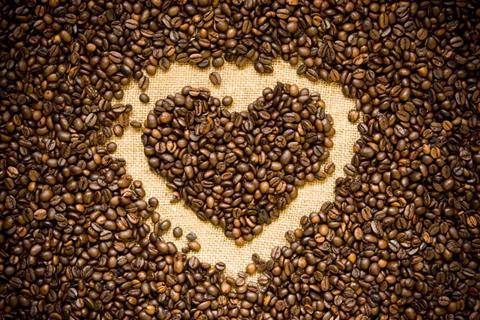
1. One in three households now buys speciality coffee
Coffee shop culture is coming home. Regular instant may be the biggest part of the UK’s take-home coffee market – contributing £546.4m to the sector’s nearly £1.5bn top line – but its share has slipped 1.1% points as posher variants have gained popularity.
Overall coffee sales have slipped 3.5% on volumes down 6.7% but regular instant has declined at nearly double the rate (by 6.3% in value and 11.7% in volume). Speciality and microground instant, coffee beans and bags have all grown (Kantar).
“With consumers spending significantly more time at home and visiting high-street coffee shops less during the pandemic, demand for good quality coffee at home has grown,” says Paul Junor, revenue and category growth controller at Jacobs Douwe Egberts [JDE].
“Even now, 61.4% of consumers are looking for coffee shop quality drinks to enjoy in the comfort of their own homes and continue to turn to trusted and familiar brands that deliver on taste and quality [Allegra World Coffee Portal 2021].”
Junor points to Kantar data which reveals that one in three households are now buying speciality coffee and mixes, such as JDE’s Kenco Duos and the Tassimo Costa ranges.
“Speciality coffee and mixes have gained greater penetration than any other in the last six years, with the segment now worth over £220m,” he says. “These products are key to recruiting younger shoppers and expanding the popularity of the coffee category.”
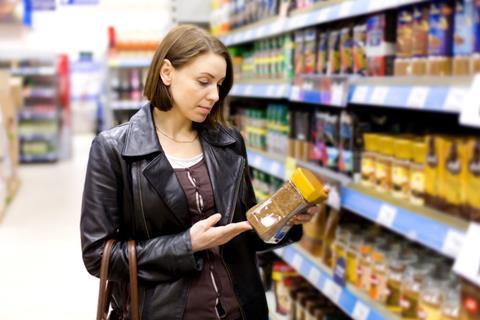
2. The market is polarising as the downturn deepens
Retailers report similar market dynamics. But there’s a caveat: consumption patterns are largely determined by demographics and location. “We have a real mix between our two stores,” says Sophie Towers, who operates two One Stop stores in Burnley, Lancashire.
“In my town centre store, we’ve seen a real uplift in Costa to go products from the office workers and university students, maybe because they are going to coffee shops less. In my other store, where there are a lot of lower income and middle-class families, we are seeing growing sales of One Stop branded instant coffee as people try to economise.”
Sophie adds that promotions are useful in driving sales of pricier products, although brand loyalty can be difficult cement in the current environment. “People do tend to respond well when we put more expensive brands on promotion but, generally, they only buy for as long as the promotions last,” she says. “Loyalty can be difficult to maintain.”
Down in well-to-do Horsham, West Sussex, Chris Shelley reports booming sales of posher coffee through his Budgens store. “We’re still seeing growth in premium coffee beans and ground,” he says. “More people have decent coffee machines than ever before and that’s also translating into good sales of pods. People are taking coffee more seriously.”
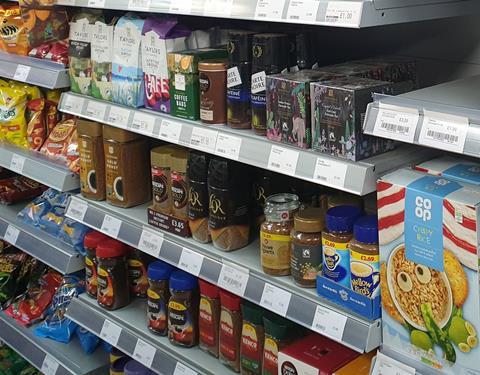
3. Four in five convenience shoppers say brands are crucial
As the cost-of-living crisis bites, many contend that it’s never been more important for retailers to get their ranges right. “We know that there is going to be significant pressure on household spending,” says JDE’s Junor, citing IGD research from earlier this year.
“Consumers are considering how they can make simple switches to save money – including swapping their coffee shop visit for a delicious version at home. Eighty per cent of convenience shoppers state that brand is the most important factor when choosing coffee. This creates a valuable opportunity that retailers should capitalise on.”
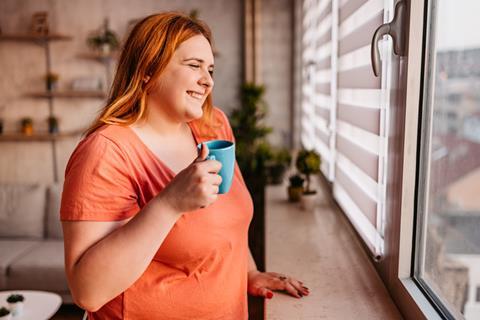
4. Nearly half of tea drinkers can’t start the day without a cuppa
Of course, coffee isn’t the be all and end all of the hot beverages market. Take home sales of tea are worth £686.3m to retailers. Although tea sales have dipped by 4.6% over the past full year (Kantar), the category is showing signs of recovery.
“Everyday black teas remain the staple buy, and value sales are up 4.5% in the four weeks to 18 June,” says Tuuli Turunen, head of marketing at Tetley. “Mornings are big tea events. A Tetley survey found that 43% of 2,000 tea drinkers can’t start their day without it.”
Retailers ignore this at their peril. “There’s nothing more comforting than a good cup of tea, and we’re seeing a resurgence in the popularity of premium black tea as consumers turn to comfort in challenging times,” says Ahmad Tea head of marketing Tracey Wakelin.
“Our bestselling Classic English Breakfast blend is testament to this. We anticipate this to perform well in the independent convenience channel over the next six months as consumers turn to tea that is both familiar and reassuring.”
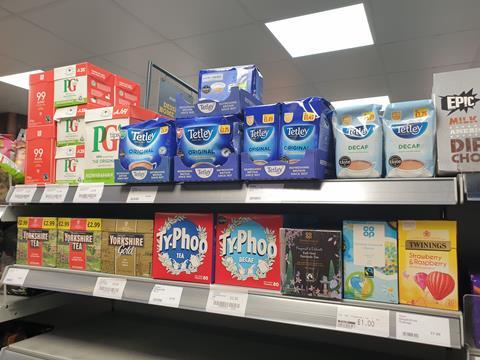
5. Black tea rules convenience, but posher blends are growing
Black tea is certainly hot stuff in convenience. “Black teas remain the bedrock of the category and the most popular choice, accounting for 73.2% of sales in grocery mults, rising to 88.6% in impulse stores,” says Tetley’s Turunen, citing NielsenIQ.
“However, in line with the growth of new tea moments, tastes in tea are changing and it is here where opportunities for increased sales can be found. Beyond the everyday, tea is fast becoming an affordable indulgence and just as awareness of provenance and taste has escalated in the coffee sector, tea lovers are becoming more attuned to what’s on offer.”
She points to the launch of Tetley Gold – billed as a “big, bold and bright blend of the finest teas from Africa and Assam” – as an example of how Tetley wants to capitalise on this, adding: “Tetley has the highest number of buyers among the major tea brands and is the top stock in impulse with 32% volume share [Nielsen].”
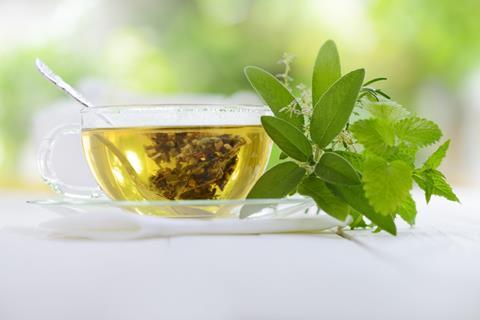
6. Demand for functional fruit & herbal teas is on the up
Fruit and herbal teas are also showing promise, with volume sales rising by 2% in the month ending 18 June [NielsenIQ). “Unsurprisingly, given recent events, teas with functional benefits have remained popular, says Turunen.
“Volume sales of Tetley Superfruits MultiVitamin, Summer Berry are up 12.8% and Tetley Super Fruits Boost with added vitamin B6, Blueberry & Raspberry are up 19.5%. Within impulse, Tetley’s strongest performing Super SKUs are Tetley Immune with added vitamin C, Lemon & Ginger, and Tetley Super Fruits Boost, Blueberry & Raspberry.”
Wakelin at Ahmad Tea agrees that functional tea is a horse worth backing, pointing to the brand’s recently launched Natural Benefits range, which boasts six blends touting specific functional benefits (Energy, Beauty, Immune, Digest, Slim and Sleep).
“The surge of interest in health and wellness since the start of the pandemic has created huge demand for wellness teas across the convenience channel, as consumers look for healthy swaps to help them stay nourished and feel good,” she says.
“We’ve also seen growth in demand for our classic Green Teas (Green Tea Pure and Mint Mystique) which are known to have a calming, cleansing effect to revive and refresh. With the summer heatwave, we’ve also seen green teas being served in new formats – over ice with a slice of lemon – for a light, refreshing serve.”
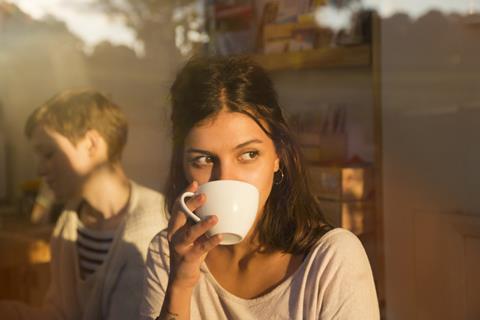
7. Decaf coffee sales are up 29%
Demand for healthier hot beverages is also driving growth in decaffeinated tea and coffee products. “The choice between caffeine and decaf products is the number one consideration for the health-conscious shopper,” says JDE’s Junor.
“Many shoppers are turning to decaf products to enjoy the experience of having a coffee, just without caffeine. With total decaf coffee sales up by 29% [Nielsen], there is a huge opportunity for retailers to offer shoppers high-quality decaf options for them to enjoy at home.”
Wakelin is similar optimistic about decaf tea. “The decaffeinated tea market is set to soar over the next few years as consumers look for the comfort of a decaf brew to refresh and recharge,” she says, pointing to Ahmad’s new decaffeinated range (comprising Pure Black, Green, Indulgent and Earl Grey Teas).
“What’s really exciting about our new Decaf collection is not only the wide range available (the collection includes black, green and flavoured teas) but also the depth of flavour. This is something often lacking in decaf tea, but ours offer the same signature flavour the brand is renowned for.”







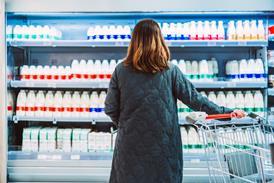
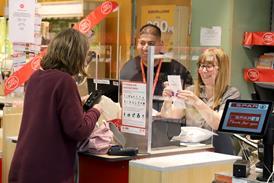


![WG-4003[58]](https://d2dyh47stel7w4.cloudfront.net/Pictures/274x183/4/5/1/353451_wg400358_6083.jpg)




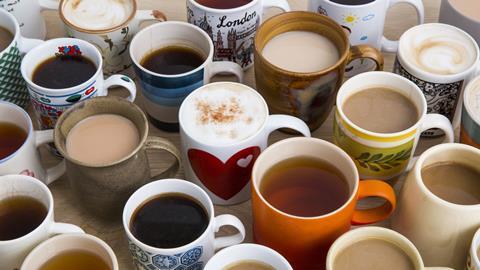
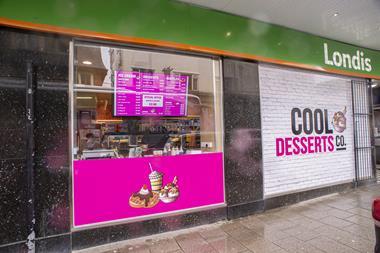

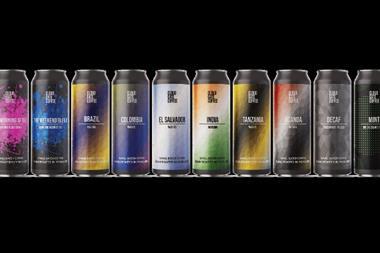
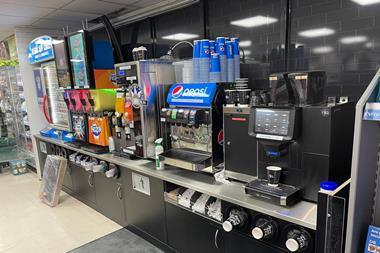


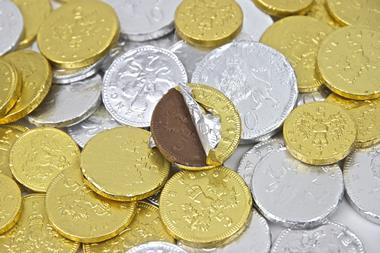
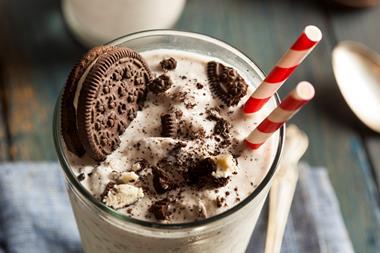

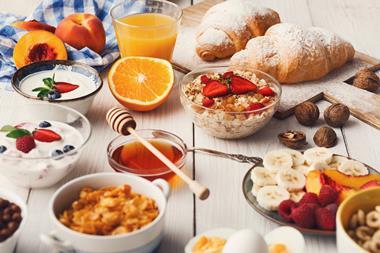
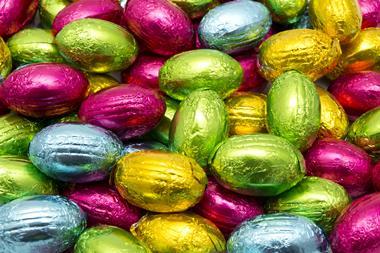
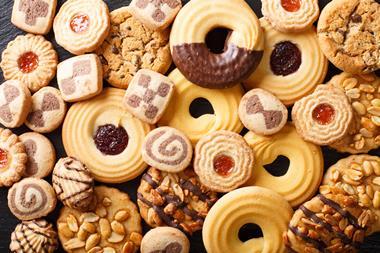
No comments yet